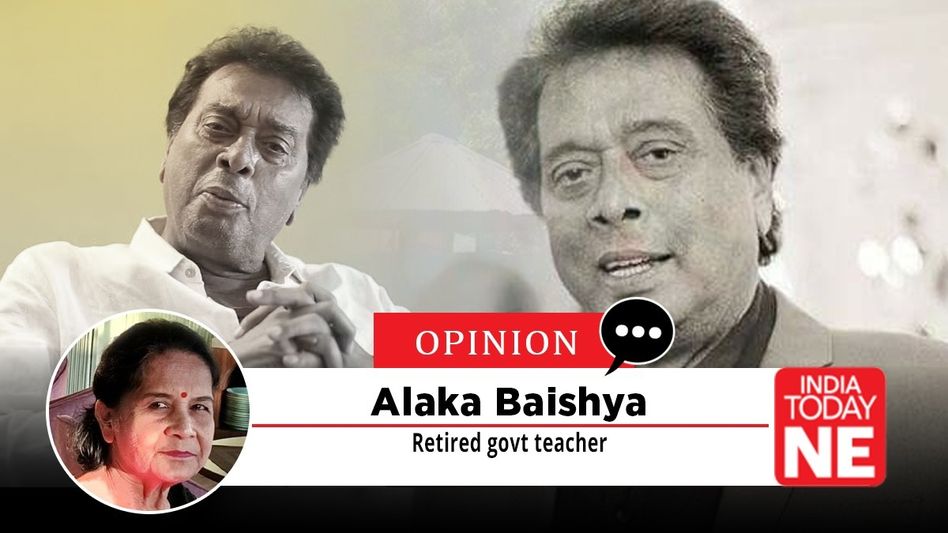Biju Phukan: The Legendary Assamese Superstar - His life, legacy, and lessons for new generation artists
Biju Phukan was a celebrated Assamese actor known for his authentic performances and dedication to cinema. His legacy continues to inspire upcoming artists in the region

In the annals of Assamese cinema, few names shine as brightly as Biju Phukan. Often regarded as the first superstar of the Assamese film industry, his four-decade career transformed regional cinema and set standards that continue to inspire artists today. This article explores his remarkable journey from Dibrugarh to stardom, his extensive filmography, and the timeless lessons new generation artists can draw from his legacy.
Biju Phukan was born on February 18, 1947, in Dibrugarh, Assam, India. Born in the same year India attained independence, his father, an Army officer, named him "Bijoy" (meaning victory) to mark the significance of the occasion. The name later evolved into "Biju" as he became known throughout Assam.
Biju Phukan appeared in more than eighty Assamese feature films over his career, establishing himself as the dominant star of Assamese cinema during the 1970s and 1980s.
His first movie was Dr. Bezbarua (1970), a landmark film and one of the first Assamese thrillers, where his performance received widespread praise. His first role as leading actor came in Baruar Songshar, followed by Aranya*, which firmly established him as a "hero" in the eyes of Assamese audiences.
The film that truly launched Biju Phukan into stardom was Samarendra Narayan Dev's Aranya in 1971, which was adjudged the Best Regional Film at the National Film Awards.
The film was shot mostly in Bhairabkunda on the Indo-Bhutan border and holds the distinction of being the first Assamese movie entirely produced by a club (United Club of Mangaldoi). The pairing of Biju Phukan as ranger Jayanta and Bidya Rao as Krishna became an instant hit at the box office, and a legend was born.
One of his most enduring contributions to Assamese popular culture was the song "Mon Hira Doi" from the film Bowari, which attained legendary status and remains beloved to this day.
Biju Phukan passed away at Apollo Hospital in Guwahati on November 22, 2017, at the age of 70, after suffering from cardiac ailments. His death marked the end of an era in Assamese cinema.
Assam Governor Prof. Jagdish Mukhi paid tribute, saying, "I am deeply saddened by Biju Phukan's death. Phukan hugely contributed to popularising Assamese cinema. With his death, a void has been created which will be hard to fill."
Remarkably, he reportedly had only two flops in his entire career spanning over 80 films, a testament to his consistent excellence and ability to connect with audiences.
Retrospectives and special screenings of his films continue to be held in his memory, and his legacy endures through film festivals, awards, and the enduring admiration of Assamese audiences.
Biju Phukan's remarkable career offers invaluable insights for emerging artists. Here's what the new generation can learn from his legacy:
1. Embrace Versatility
Biju Phukan wasn't confined to a single genre. He moved seamlessly between romantic roles, action films, and dramatic performances. New artists should resist being typecast and continuously challenge themselves with diverse roles to demonstrate range and ensure longevity.
2. Stay Committed to Regional Identity
Despite opportunities elsewhere, Biju Phukan remained dedicated to Assamese cinema throughout his career. He proved that regional cinema can produce superstars and meaningful work. Success doesn't require abandoning your roots, there's immense value in telling stories that resonate with local audiences and preserve cultural heritage.
3. Build Collaborative Relationships
His work with directors like Samarendra Narayan Dev and writers like Dr. Bhabendra Nath Saikia shows the importance of surrounding yourself with talented collaborators. The Assamese film industry grew stronger because artists supported each other.
4. Diversify Across Platforms
He didn't limit himself to films alone, he worked in mobile theatre, stage plays, and television. Today's artists have even more platforms available: streaming services, YouTube, social media, and short films. Diversifying helps build wider audiences and develops different skills.
5. Practice Patience and Persistence
Biju Phukan's journey from Dibrugarh to becoming Assam's first superstar wasn't overnight. He moved to Guwahati in 1976 and steadily built his reputation film by film. Sustainable careers are built gradually through consistent, quality work rather than viral moments.
6. Connect Authentically with Audiences
His song "Mon Hira Doi" became iconic because it resonated emotionally with Assamese audiences. He understood his audience deeply. New generation artists should focus on authentic storytelling that connects with people's lived experiences rather than simply imitating trends from other industries.
7. Evolve Without Losing Your Essence
As he aged, Biju Phukan transitioned from romantic leads to character roles and moved behind the camera as director and producer. Artists must be willing to evolve with time while staying true to their artistic essence.
8. Maintain Professionalism
With reportedly only two flops in his entire career, Biju Phukan demonstrated remarkable consistency. This speaks to his professionalism, preparation, and wise project selection. New artists should focus on quality over quantity and build a reputation for reliability.
9. Give Back to the Industry
He served as a jury member for Indian Panorama and contributed to nurturing the film ecosystem beyond just acting. New generation artists should think about mentoring others, advocating for better industry conditions, and helping regional cinema grow.
10. Stay Grounded
Despite being a superstar, Biju Phukan remained connected to his community and continued living in Assam. Fame can be isolating, but staying connected to your origins keeps you grounded and your work authentic.
Finally, Biju Phukan proved that regional cinema matters and that artists can achieve greatness while celebrating their cultural identity. For new generation Assamese artists, and indeed artists from any regional film industry, his life demonstrates that dedication to craft, respect for your audience, and pride in your heritage can create a legacy that outlives any individual film.
The best tribute new artists can pay to legends like Biju Phukan is not imitation, but carrying forward that same spirit of excellence and commitment to storytelling that serves their community. His journey from Dibrugarh to becoming the undisputed superstar of Assamese cinema remains a beacon for all who dream of making their mark in regional cinema.
In the words that could summarise his life's philosophy: stay rooted, work hard, respect your craft, and never forget the audience that made you who you are.
Copyright©2025 Living Media India Limited. For reprint rights: Syndications Today









